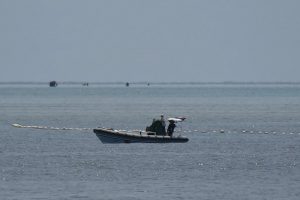One of the officials of the World Health Organisation, who was with his team for a probe related to the origin of novel coronavirus in Wuhan, said that China has refused to share the raw material on the early cases of novel coronavirus, which is required to understand how the outbreak began, reported Wall Street Journal.
An Australian infectious diseases expert, Dominic Dwyer, who is part of the investigation team, said that the team had solicited raw patient data on the 174 cases of COVID-19 that China had identified from its early phase of the outbreak in December, 2019, in Wuhan, including other cases, but were only provided with a summary.
Also Read: ‘All hypotheses still on the table’: WHO chief on COVID-19 origin
Such raw data is called as “line listings”, and would typically be anonymised but restrict details such as what questions were asked of individual patients, their responses, and how their responses were analysed, he said.
“That’s standard practice for an outbreak investigation,” the Doctor informed Reuters, who is undergoing quarantine in Sydney.
He emphasised that gaining access to the raw data was vital since only half of the 174 cases had exposure to the Huanan market, the now-shuttered wholesale seafood place in Wuhan where the virus was initially traced down.
Also Read: Robert F Kennedy Jr banned from Instagram for spreading misinformation about vaccines
“That’s why we’ve persisted to ask for that. Why that doesn’t happen, I couldn’t comment. Whether it’s political or time or it’s difficult … But whether there are any other reasons why the data isn’t available, I don’t know. One would only speculate,” he added.
“The WHO people certainly felt that they had received much much more data than they had ever received in the previous year. So that in itself is an advance.”
He further said that issue of access to raw material would be mentioned in their final report.
Moreover, a summary of the WHO’s findings would likely be released in next week.
The WHO-led investigation had endured delay, concern over access, and wrangle between Beijing and Washington, which accused China of concealing the extent of the initial outbreak while criticising the terms of the visit, under which Chinese experts held the first phase of research.
The team, which reached China in January and spent four weeks ascertaining the origins of the COVID-19 outbreak, was confined to visits organised by their Chinese hosts and prevented from contact with community members, due to health restrictions. Their first two weeks included hotel quarantine.
The previous US administration of former president Donald Trump had raised apprehensions that the virus may have escaped from a Wuhan lab, which Beijing strongly refutes.
“It was an unanimous feeling. It wasn’t a political sop whatsoever,” Dwyer said.






